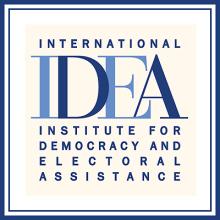Resource information
I Thai perceptions of Burma;
II Ties with Thailand: a short history;
III Border trade from 1948–1999;
IV Evolution of Thailand’s constructive engagement policy;
V Thai-Burmese technical cooperation 123VI Key issues;
VII New Thai policy towards Burma;
VIII Conclusions.
"...Thai-Burmese relations have reached a critical juncture. Never before have Thai policy-makers
expressed such frustration over bilateral ties, especially over the issue of narcotics suppression.
Before the extensive political reform in Thailand in 1997, Thai-Burmese ties were mainly driven by
personal friendship. For instance, the leaders of the armed forces from the two countries met often and
resolved conflicts on an ad hoc basis and through gentlemen’s agreements. That helped explain why
certain problems could be settled quickly and other problems dragged on. It must be noted that some
of the issues settled through political expediency have returned to haunt the leaders of the two
countries. In the past, strong military ties omitted and obliterated other key policy-makers including
the Foreign Ministry, the National Security Council, the Interior Ministry and other related
organizations. But with reform, the Foreign Ministry took the lead in the formation and execution of
Burma policy.
The international community would like to see Thailand take a firm stand against the Burmese junta.
As in the Cambodian conflict between 1978 and 1992, Thailand was able to provide leadership during
the 14-year conflict and was a prime mover behind ASEAN solidarity and policy initiatives.
Unfortunately, during the crucial days of Burma–ASEAN relations between 1995 and 1997, when key
ASEAN decisions were made, Thailand was troubled by political uncertainty at home. However, the
political reform that has taken place since 1997 should serve as political bedrock.
However, when the government under Prime Minister Thaksin Sinawatra came to power in early
2001, he turned the Burmese policy upside down. With strong support from his coalition partner,
Defense Minister Gen Chavalit Yongchaiyudh, he has followed a policy of appeasement to further
economic ties and, in particular, gain cooperation in narcotics suppression.
The long-term prospects of joint anti-narcotic suppression and proposed demarcation of the border
remain doubtful. With an absolute majority in the house, the Thaksin government is likely to continue
the current policy which stimulates cross border trade regardless of political conditions inside the
country...



